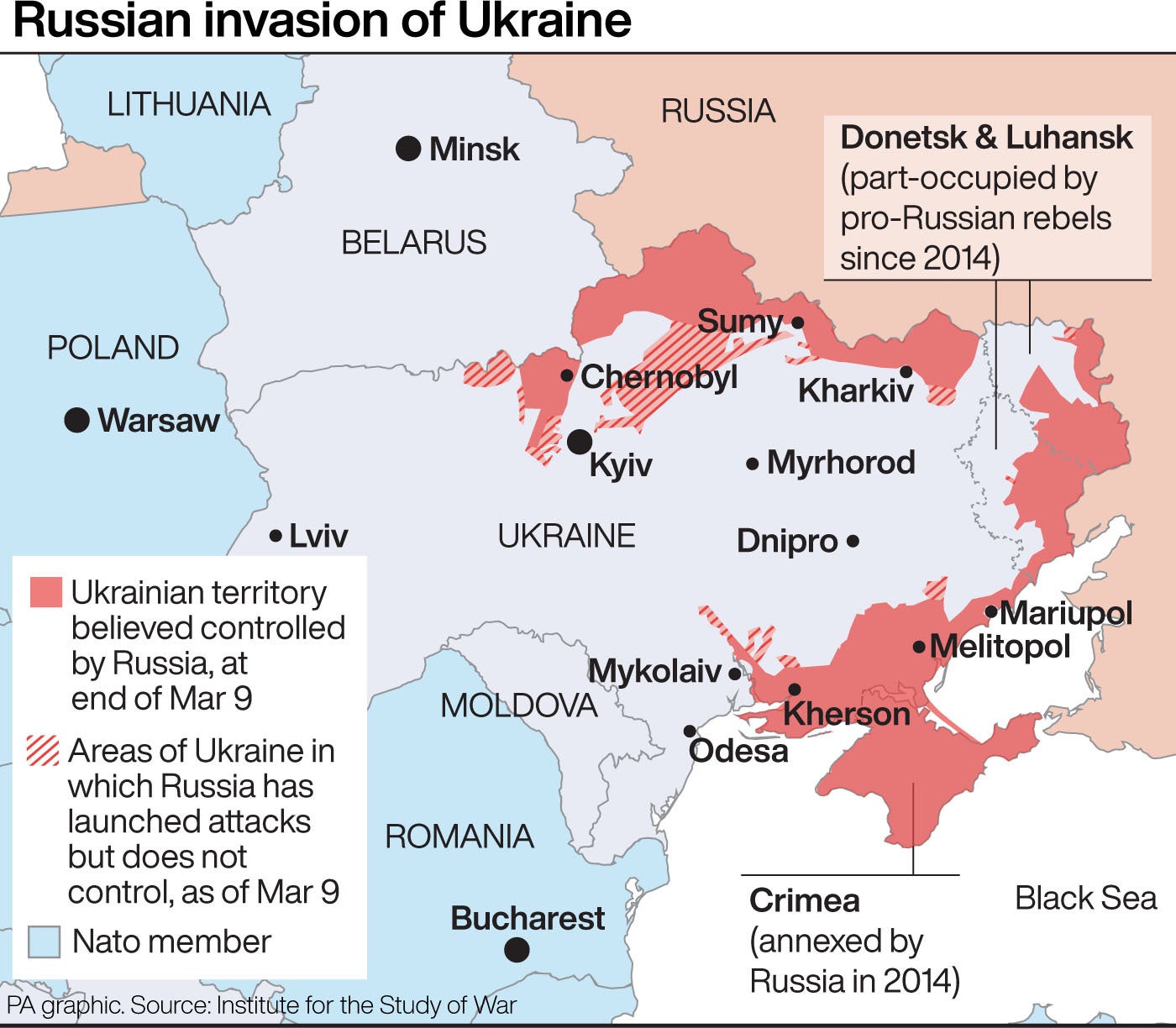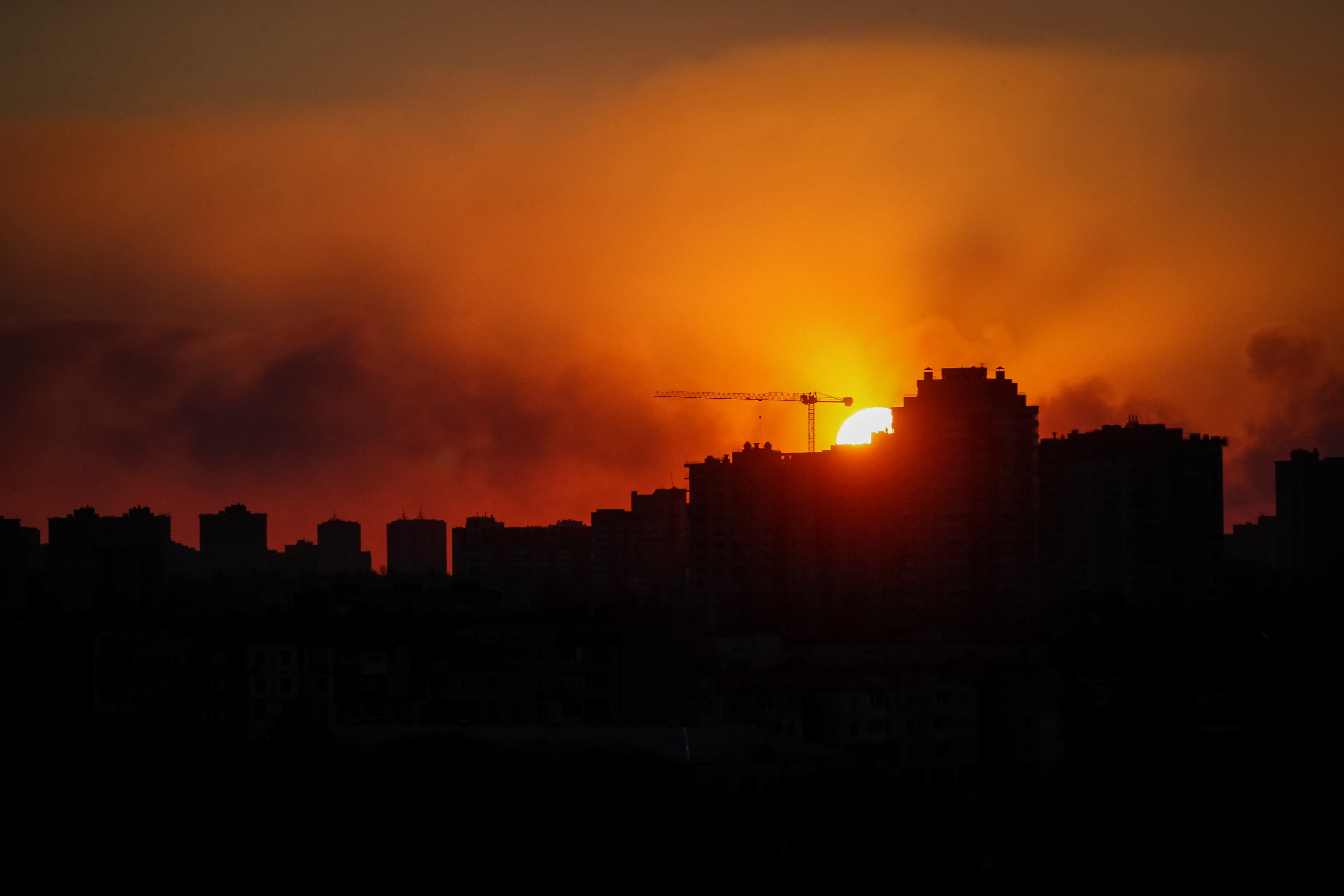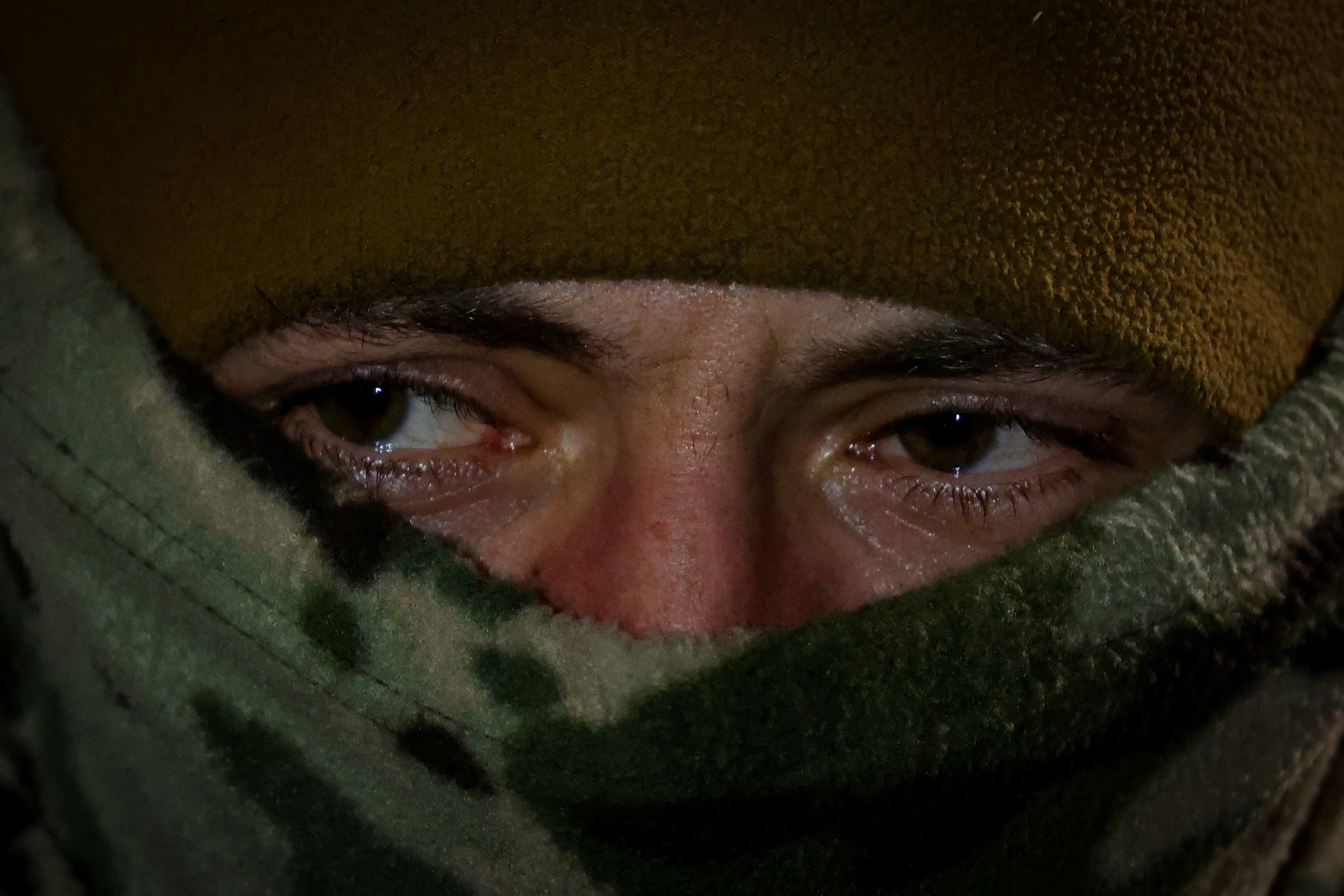
Britain’s failure to stand by allies in Afghanistan, leaving them in the clutches of the Taliban, affected Mark greatly, and helped him make up his mind to come to Ukraine and be part of the resistance against the Russian invaders.
The 35-year-old British army reservist, using his middle name to avoid being identified while telling his story, is among a group of former and serving members of the British military who are in Ukraine offering to fight as volunteers in the escalating and increasingly bloody conflict.
The NCO (non-commissioned officer) who had taken part in two tours of Afghanistan, as well as having been deployed to Iraq, believes his combat experience will be of help to the Ukrainian troops facing Vladimir Putin’s forces. He also felt, strongly, that he would be letting down a brave people in their hour of need if he did not at least try to help.
The former regular, who lives in one of the Home Counties, spent most of his service career as a member of an infantry regiment based in England, and also on attachment to a mechanised brigade in Afghanistan, wanted to visit Irpin, a city near Kyiv the Russians are trying to seize, after reports in the media about the battle there to cast a professional eye over what was going in.
The chaotic US-led retreat from Afghanistan, which the UK followed, led to Afghans who had worked with the British being left behind when the Taliban took over. Some were subsequently killed, others were tortured, or have disappeared after being arrested.
Many British service personnel, like Mark, were angry and upset at what unfolded in Afghanistan, and passionately believe much more should have been done to help and save the people exposed to Islamist vengeance.
“We saw what happened when Kabul fell, saw that we really abandoned so many of our friends we had worked alongside, fought alongside, and we knew this was very wrong,” he wants to stress. “We weren’t there and felt a bit helpless. A lot of us felt that way, we talked about it, asked why had we spent 20 years there for it to end in this terrible way.”

“A few of us had tried to get out people we knew in the ANSF (Afghan National Security Forces) and we managed to get some of them and their families out. That was good, but it was all after the event really.”
After exchanging pleasantries with a group of Ukrainian soldiers on a smashed bridge in Irpin , Mark continues: “With Ukraine I feel we are not too late, they haven’t been taken over suddenly like Afghanistan, they are putting up a great fight, and we can help.
“I won’t pretend to know about all that is going on here. I know that ops here will be different from Telic and Herrick (Iraq and Afghan operations) but the same soldiering skills apply and we’ve all taken part in plenty of Nato exercises, we know what fighting in Europe will involve.”
Mark is estranged from his partner, who is the mother of their two young children. She and members of his family had expressed concern about him coming to Afghanistan but they have, he says, accepted his decision to do so.

“I told them that it was just like me going on another deployment. Of course this is not a war in which the UK is directly involved, but we are sending Ukraine a lot of weapons, and we are just a small number of boots on the ground in purely in a private capacity,” he says. “My family could see where I was coming from.”
But, as well as the obvious risks of taking part in a conflict, Mark faces problems ahead. As a member of the Army reserves he is in breach of military regulations by coming to Ukraine .
Admiral Sir Tony Radakin, the Chief of the Defence Staff, has told service personnel that the “sound of gunfire” was not “something you want to rush to”, it would be “unlawful and unhelpful” to do so and urged them to support Ukraine in other ways.
The British Army has confirmed that a small number of soldiers had gone to Ukraine. Some of the regulars and reservists have taken leave to do so, only one has simply left his duties. Unlike the regulars, tracking the movement of reservists is much more difficult for the Ministry of Defence (MoD), and this buys them a bit of time.
With the prospect of more either travelling to Ukraine or expressing interest in going there, the Chief of Defence People, Lieutenant General James Swift, has sent a message to desist through the chain of command.
Lt Gen Swift stated that military personnel joining the Ukraine conflict would not only be putting their lives in danger but also risk giving “the mistaken perception” to Russia that Britain had sent troops to take part in hostilities.
Mark and others in the military who have come to Ukraine point to the words of Liz Truss, the foreign secretary, last week that going to the war in Ukraine is something British citizens “can make their own decisions about. The people of Ukraine are fighting for freedom and democracy, not just for Ukraine but for the whole of Europe”.
The former NCO also wanted to mention the plea by Ukraine’s president, Volodymyr Zelensky, for foreign volunteers to help his country. Exact figures are difficult to quantify, but the “International Legion” is expected to reach around 20,000 with 16,000 arriving from around 52 countries.
Mark did not know that Ms Truss had since retracted her statement. He also acknowledged that what she said had been superseded by the orders of his superior officers and says he understands the reasons behind what they are saying.

In Irpin, Mike kept away from areas where there was obvious Russian activity, and avoided being seen holding a gun. He and some of the others he had travelled with are yet to sign on as Ukrainian soldiers. But he has broken British army rules by even being in Ukraine at this time.
One reason for hesitancy by some volunteers in signing on is that the Ukrainian military stipulate that enlistment would last until martial law ends – in effect until the conflict ends.
“You can see it from the Ukrainian point of view, they don’t want a bunch of war tourists to come along,” says Mark. “This is obviously the real thing, one needs to have commitment, accept the consequences.”
UK military officials say that cases of service personnel going to Ukraine would be dealt with on an individual basis. One option open to Mark would be to resign now from his army unit and perhaps reapply to join later.
The armed forces minister, James Heappey, had said in London that it would be illegal for members of the military to be absent without leave and go to Ukraine.
“Service people who might think it is the right thing should reflect that it is 100 per cent not the right thing to be doing....They will be in a lot of trouble.”
Mark says, “that’s probably true, there will be a lot of trouble.”
Then, pointing at families with young children, elderly people coming out of Irpin over twisted metal and rubble of the blown bridge, he adds, “but look these people are in a lot of trouble. The people in Afghanistan are in a lot of trouble. There are degrees of being in trouble, aren’t there?”







